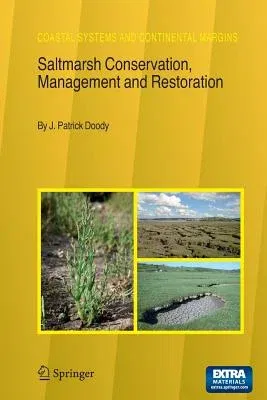J Patrick Doody
(Author)Saltmarsh Conservation, Management and Restoration (Softcover Reprint of the Original 1st 2008)Paperback - Softcover Reprint of the Original 1st 2008, 30 April 2017

Qty
1
Turbo
Ships in 2 - 3 days
In Stock
Free Delivery
Cash on Delivery
15 Days
Free Returns
Secure Checkout
Part of Series
Coastal Systems and Continental Margins
Print Length
219 pages
Language
English
Publisher
Springer
Date Published
30 Apr 2017
ISBN-10
940177630X
ISBN-13
9789401776301
Description
Product Details
Author:
Book Edition:
Softcover Reprint of the Original 1st 2008
Book Format:
Paperback
Country of Origin:
NL
Date Published:
30 April 2017
Dimensions:
23.39 x
15.6 x
1.3 cm
Genre:
Ecology
ISBN-10:
940177630X
ISBN-13:
9789401776301
Language:
English
Location:
Dordrecht
Pages:
219
Publisher:
Weight:
340.19 gm

